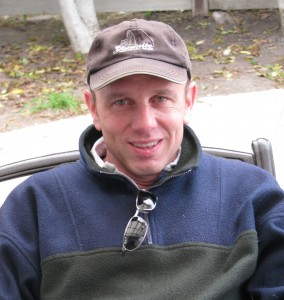Independent research for the independent consultant, Part 1: Making time
19 September 2012 – Michael Adamson
 Prompted by Adina Langer, my colleague on the NCPH Consultants Committee and one of the editors of this blog, I am going to relate how I have pursued a research agenda independently of my work for clients. Admittedly, my career as a historical consultant has been somewhat eclectic, but I hope that you may find at least some of what I have to say applicable to your own situation.
Prompted by Adina Langer, my colleague on the NCPH Consultants Committee and one of the editors of this blog, I am going to relate how I have pursued a research agenda independently of my work for clients. Admittedly, my career as a historical consultant has been somewhat eclectic, but I hope that you may find at least some of what I have to say applicable to your own situation.
Having a fair amount of flexibility in arranging work and pursuing research topics that dovetail with my consulting practice are the two primary reasons that I have been able to conduct a good amount of independent research over the past twelve years. I discuss these in turn in separate blog posts:
Work as a contractor, rather than as an employee
I have worked as an independent consultant since I received my Ph.D. in 2000. While I have worked steadily, more or less, for the past decade, there has been enough slack to allow for research and writing—not enough to write a book, it turns out, but enough to write more than a dozen essays published as either articles in peer-reviewed academic journals or chapters in books, almost two dozen book reviews, and a number of other articles. Some of this writing resulted from research I conducted as a graduate student, but much of it has been the product of additional research.
Of course, your primary task as a consultant when not working for a client should be landing the next engagement, so you have to consider the economic opportunity cost of taking time out to research and write a conference paper or a book chapter. At the same time, I have considered my own researching, writing, and conferencing to be a form of business development, however indirect, in terms of establishing my bona fides and so on, and so you may feel comfortable justifying these activities in these terms.
I did work 40–70 per week as an employed (IT) consultant for eight years prior to returning to graduate school, and so I can appreciate how difficult it may be for consultants who work as a full-time employee within an organization to pursue their own research after hours.
Even as a full-time (40-hour-per-week) employee, there should be time for the determined historian to read in the secondary literature and perform other research-related tasks. Still, it is much harder to take time out to spend time in the archives or put pen to paper. Full-time employees don’t generally get summers or other “chunks” of time to do these things. And having blocks of time is really the key: Spending 80 hours per month “after hours” on your research is not the same as having a two-week period of time to devote to archival research or writing.
For a consultant, client service is everything. The client’s deadlines are your deadlines and you do whatever it takes to satisfy your client’s expectations. On more than one occasion, I have dropped everything to book a trip to conduct research on a client’s behalf. At the same time, the work I have done has been such that I have been able to take two weeks here and there to travel to archives or write an article between engagements, and so I have adjusted my expectations and agenda accordingly to fit with what is possible under these circumstances.
Of course, as an independent consultant, I could give myself an unpaid sabbatical to write the books I hope to eventually write, but at too great an economic cost. Turns out, my first book, A Better Way to Build: A History of the Pankow Companies, forthcoming from Purdue University Press in 2013, resulted from a client engagement. In other words, I got paid to write it. Yet, as it incorporates business, urban, and California history, the project overlapped nicely with my research interests. Indeed, I was able to incorporate some of my own research into the narrative; at the same time, the research that I performed in the writing of the book has supplemented my research.
I will elaborate on the potentially fruitful intersection of your clients’ interests and your own research in the second part of this series.
~ Michael Adamson is a historical consultant, researcher, and writer in the San Francisco area. He holds a PhD from the University of California at Santa Barbara.




2 comments